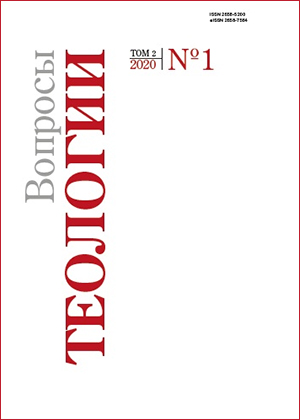К вопросу об интерпретации Кох 3:10–11
DOI:
https://doi.org/10.21638/spbu28.2020.101Аннотация
Статья посвящена исследованию возможных вариантов перевода и анализа одного из наиболее трудных для интерпретации пассажей Книги Кохелета (Экклесиаст) — Кох 3:10–11, который, как пытается показать автор, содержит ключ к выявлению глубинной сути всей теолого-антропологической концепции данного библейского произведения, а также принципов его эпистемологии и когнитивной методологии. Особое внимание уделено обоснованию возможных вариантов интерпретации терминов hā-ʻōlām и lēḇ в Кох 3:10–11. По мнению автора, первый термин может быть интерпретирован в Кох 3:10–11 как «мирозданная вечность» или «длительность» (в бергсоновском понимании этого понятия применительно к сознанию человека и Вселенной), а второй — как «разум» или «сознание». Рассматриваются возможные интерпретации фразы mib-bǝlî ʼăšer lōʼ в Кох 3:11bα (нигде более не встречающейся в Библии), имеющей принципиальное значение для понимания эпистемологической концепции Книги Кохелета. Автор статьи полагает, что пассаж Кох 3:10–11 может быть истолкован весьма оптимистично в отношении возможностей человеческого познания: для разумного духа праведника и мудреца — это бесконечно длящийся процесс постижения Вселенной, осуществляемого им как бы с точки зрения вечности.
Ключевые слова:
Библия, Книга Кохелета, hā-ʻōlām в Библии, lēḇ в Библии, теология Кохелета, антропология Кохелета, эпистемология Кохелета
Скачивания
Библиографические ссылки
Sources
References
Загрузки
Опубликован
Выпуск
Раздел
Лицензия
Статьи журнала «Вопросы теологии» находятся в открытом доступе и распространяются в соответствии с условиями Лицензионного Договора с Санкт-Петербургским государственным университетом, который бесплатно предоставляет авторам неограниченное распространение и самостоятельное архивирование.




